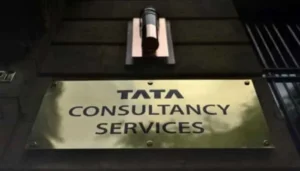As Tata Consultancy Services (TCS) wraps up the first 35-day cycle of its newly implemented benching policy, thousands of employees are grappling with anxiety, career uncertainty, and fears of termination.
The policy, introduced on June 12, 2025, limits the time an employee can remain unallocated—without a billable project—to 35 business days per year, marking a significant shift in workforce management at India’s largest IT services firm.
TCS Bench Policy Overview: A Structured Push for Utilization
Under the revised associate deployment policy, TCS mandates that employees must be billed for at least 225 business days annually.
Those exceeding the 35-day bench limit risk career stagnation, demotion, or termination.
The policy was communicated by Chandrasekaran Ramkumar, Global Head of the Resource Management Group (RMG), and is positioned as a formalization of long-standing internal expectations.
TCS CEO K Krithivasan defended the move, stating, “It’s always been expected that associates take responsibility for their careers.”
He added, “While HR supports project placement, we also expect associates to proactively seek new assignments after completing existing ones”.
Employee Reactions: Mismatched Roles and Relocation Pressure
The policy has triggered widespread concern among employees, many of whom have taken to platforms like Reddit to voice their frustrations.
Complaints include:
- Being forced into roles unrelated to their training (e.g., Java-trained employees pushed into support projects)
- Client interview rejections and lack of suitable assignments
- Relocation demands to cities far from home locations
One Reddit user warned, “This is the first step towards employment rationalisation based on utilisation. Brace for layoffs.”
Another fresher shared, “It’s not even a month on bench and RMG is pressuring me to join a support project, far from Java and Python”.
Union Intervention: NITES Flags TCS Policy as Exploitative
The Nascent Information Technology Employees Senate (NITES) has formally opposed the policy, calling it “inhumane,” “exploitative,” and psychologically distressing.
In a letter to Union Labour Minister Mansukh Mandaviya, NITES President Harpreet Singh Saluja stated, “These are not non-performing employees, but skilled professionals who find themselves temporarily without allocation… Instead of support, they are met with suspicion, coercion, and threats”.
The union also alleged that employees are being denied experience letters and threatened with termination if they fail to meet unrealistic deployment timelines.
Mandatory Upskilling and Office Presence
During bench periods, employees are required to:
- Spend 4–6 hours daily on upskilling via platforms like iEvolve, Fresco Play, and LinkedIn
- Attend in-person sessions and use tools like the Gen AI Interview Coach
- Maintain physical office presence, with remote work discouraged except in emergencies
Industry Context: AI Disruption and Cost Pressures
TCS’s move comes amid macroeconomic uncertainty, AI-led automation, and rising employee costs.
The company reported its third consecutive quarter of degrowth, with wage expenses hitting an all-time high of ₹37,715 crore, accounting for nearly 60% of revenue.
Attrition stood at 13.8%.
Experts believe the policy reflects a broader industry trend. Pareekh Jain, CEO of EIIRTrend, noted, “IT companies are likely to tighten their bench policies due to the soft business environment and rising demand for advanced skills.”
Nitin Bhatt of EY India added that future promotions will be based more on skills proficiency than tenure.
Mixed Reactions: Efficiency vs. Employee Morale
While many employees oppose the policy, some support it, arguing that long-term benchers have exploited the system.
One Reddit post read, “This may help TCS trim some seriously underperforming resources, those stuck on TCS like a leech”.
Nonetheless, the policy’s rollout has sparked a debate on employee dignity, career ownership, and the future of workforce management in India’s IT sector.
Note: We are also on WhatsApp, LinkedIn, Google News, and YouTube, to get the latest news updates. Subscribe to our Channels. WhatsApp– Click Here, Google News– Click Here, YouTube – Click Here, and LinkedIn– Click Here.



